At least 120 cats rescued from ‘hellish jail’ outside Bangkok
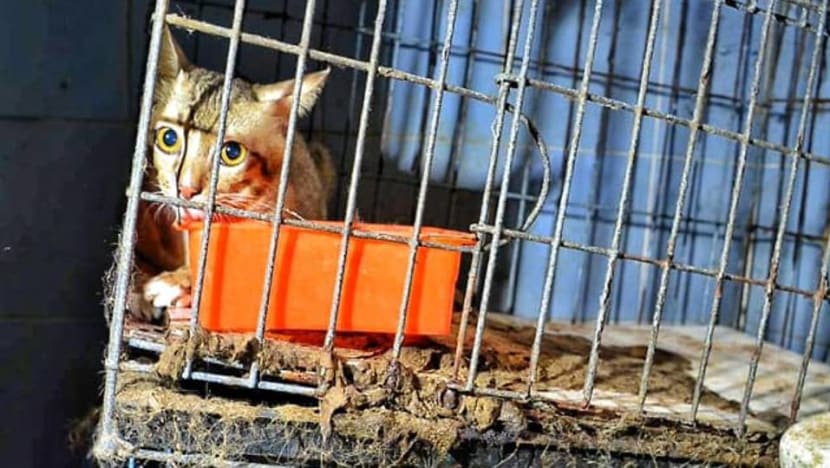
A cat is locked up in a dirty cage. (Photo: Saengduean Chailert)
BANGKOK: A group of volunteers have spent days rescuing at least 120 cats locked up in three townhouses outside Bangkok, where the animals were kept in dark rooms and small, filthy cages with hardly any food or water.
The buildings are located near one another in Pathum Thani province, north of Bangkok. Rescuers also found a number of pregnant cats, kittens and remains of dead felines in cages.
Three dogs with severe skin infections were also rescued from a cramped, dingy toilet inside one of the buildings.
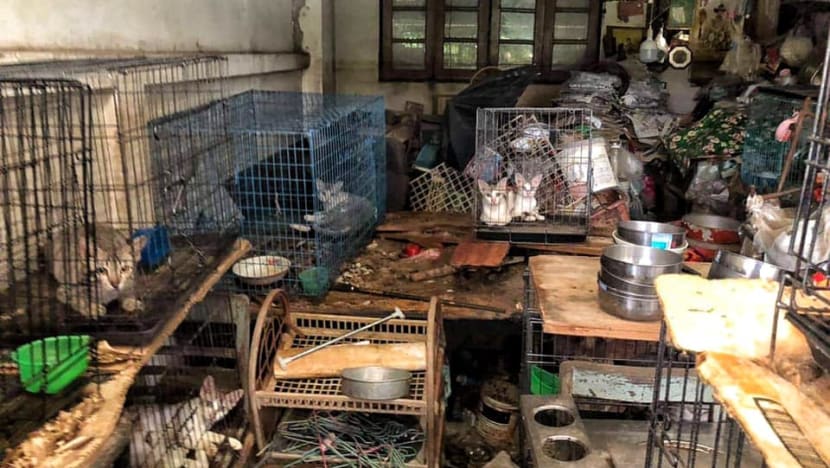
According to Saengduean ‘Lek’ Chailert, an animal welfare supporter who coordinated the rescue, the animals brought out by the volunteers were famished, dehydrated and frightened.
Currently, they are receiving medical care before a transfer to the Save Elephant Foundation – an animal sanctuary and rescue centre in Chiang Mai.
“The animals were howling,” she told CNA about the rescue at one of the buildings, where volunteers were not able to enter initially.
"They reached inside with small bags of food that had been cut open but dropped one by accident. The cats devoured the bag whole because of the smell. They chewed it and ate it all. The volunteers tried to get inside to help but couldn’t make it in time. The cats were starving."
Following a complaint about animal cruelty, volunteers from animal rights groups travelled to Pathum Thani for a rescue operation last week.
However, according to Lek, the owner of two of the buildings did not allow the volunteers to enter. This led to the involvement of municipal officers, police and officials from the Livestock Development Department, which is responsible for enforcing the Cruelty Prevention and Welfare of Animal Act (2014).
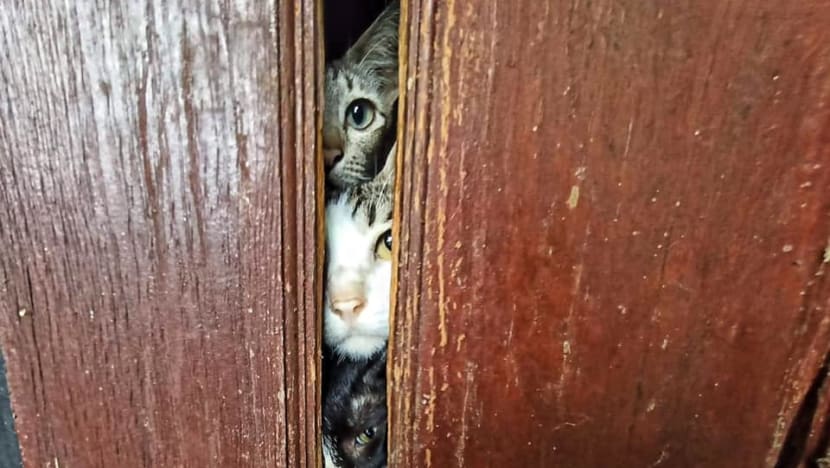
Video clips shot by volunteers showed a number of cats locked up in small cages inside the buildings. The space was pitch-dark and full of filthy cages stacked on top of one another. Food and water bowls inside the cages were dry. Several cats had broken loose and were hiding among piles of rubbish and in the ceilings.
According to Lek, the owner is an 82-year-old woman who lives on the first floor in one of the buildings. “She said people left the cats in her care and paid her 500 baht (US$16) a month. However, they no longer do that.”
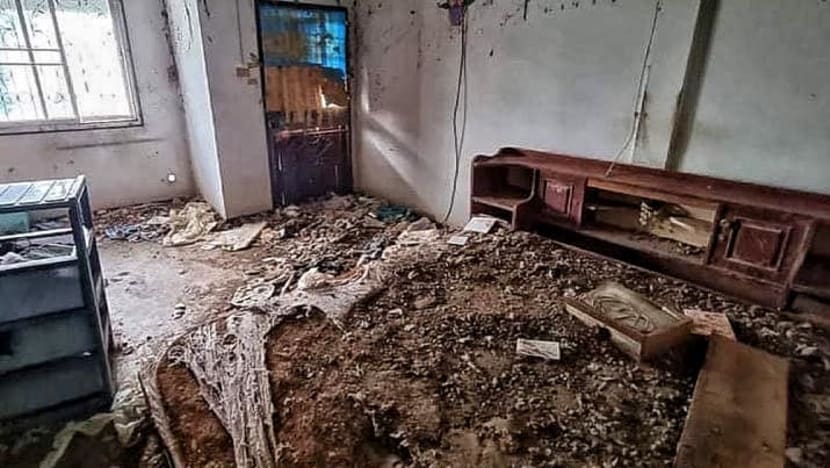
During the rescue, rescuers heard the sound of cats in another townhouse and went to inspect. A video clip shot by one of them through small cracks in the door showed a dilapidated room full of more felines.
Dozens of them were on the floor, staring at the rescuer from inside the house where neighbours said the animals had been locked up for years and fed once a week.
“Cats at this building were kept in the dark. The space is narrow and has no light. The animals seem to have inbred,” Lek said, adding they all look similar.
"They were in this hellish jail and didn’t know what to do. It’s their nature to breed."
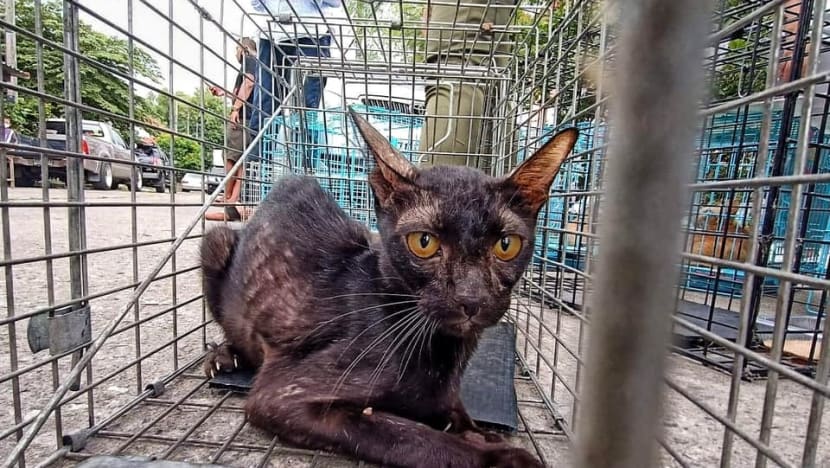
Thai law stipulates that animal cruelty means an act or a failure to act that causes an animal to suffer – physically or mentally – to experience pain, illness or disability, or to die without justification. It also includes the use of an animal that is disabled, ill, old or pregnant for exploitation.
A violation of the law is punishable by up to two years in jail or a fine of up to 40,000 baht, or both.
CNA has approached the Livestock Development Department for comments on whether any further action will be taken.












